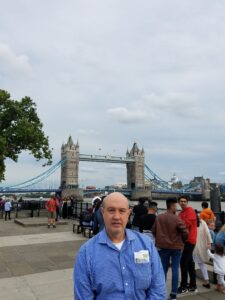FORCE FIELDS AND INNOVATION
Introduction This paper relates selected multidirectional patterns of change—“force fields”—in the business environment to innovation strategy within the context of Zen philosophical principles. Three force fields are selected for brief evaluation: 1) domestic vs. global markets, 2) economic growth vs.
Gary Davis is an economist working in Washington, D. C. He has published articles on Eastern philosophy for business innovation in several management journals, including Innovation Management. In 2009-2010, he published an article, “Contexts for Innovation,” in magazines in both the U. S. and Malaysia. The article recommends a synthesis of Eastern and Western strategies for business teams. He has studied innovation processes in connection with a position as research team leader. Gary Davis has presented economics papers at seminars and national conferences (e.g., of the Southern Economics Association and Society of Government Economists). He also gave a presentation on innovation to a U. S. Federal government seminar. He holds Master’s degrees in Economics and Public Administration and a Doctorate in Public Administration from George Mason University, Virginia.

